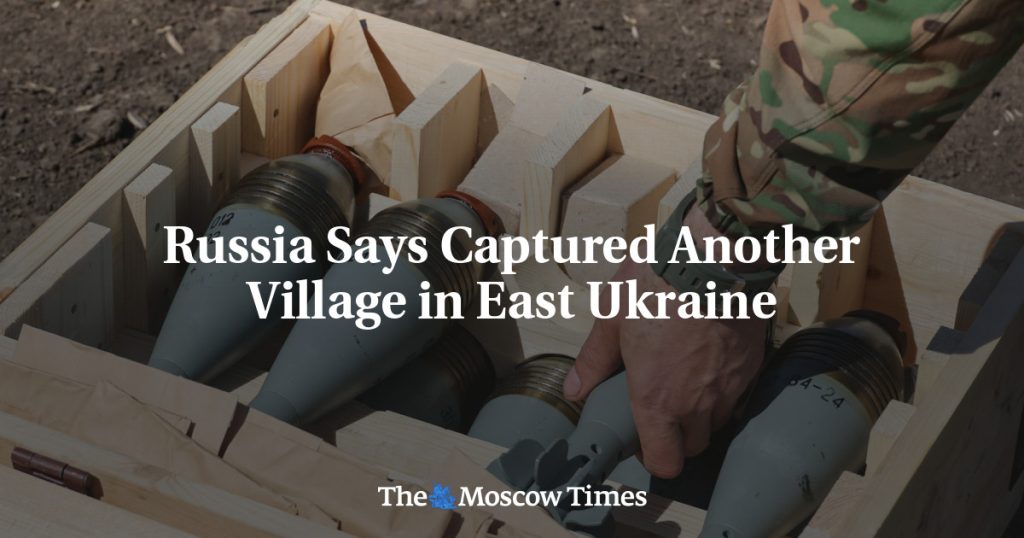Russia announced on Saturday that it had captured another village in Ukraine’s eastern Donetsk region, specifically the village of Arkhanhelske to the north of Donetsk. This latest acquisition came as part of Russia’s ongoing offensive in the region, with the aim of consolidating control over key areas. Meanwhile, Ukraine reported that Russian forces were intensifying attacks away from the Kharkiv region, signaling a shift in focus from previous operations. The General Staff in Ukraine noted increased Russian activity near the town of Pokrovsk, with multiple firefights ongoing in surrounding villages.
In response to Russian aggression, Ukrainian forces managed to repel two attacks in the Kharkiv region as fighting continued near the town of Vovchansk, which Moscow was attempting to seize. The governor of the Kharkiv region reported that Russian forces had targeted the railway hub of Kupiansk-Vuzlovyi with a guided bomb, resulting in injuries to at least five individuals. President Volodymyr Zelensky visited Kharkiv to meet with military officials and discuss strategies for defending the region, particularly Vovchansk. These developments underscore the escalation of hostilities in Ukraine’s eastern regions, with both sides engaged in fierce battles for strategic positions.
The situation in the Donetsk region has also been dire, with Ukrainian police reporting civilian casualties and widespread Russian attacks. Three civilians were killed and two wounded in Russian assaults on Donetsk, with over 1,800 strikes recorded in the region over a 24-hour period. The intensity of the conflict in eastern Ukraine has led to a humanitarian crisis, displacing thousands of people and causing significant damage to infrastructure. Efforts to protect civilians and provide aid in the midst of ongoing hostilities have been challenging, with both military and humanitarian organizations struggling to mitigate the impact of the violence.
Russia’s territorial gains in the Donetsk region, including the capture of Arkhanhelske and Ocheretyne, have raised concerns about the broader implications of its military campaign in Ukraine. The expansion of Russian control over key areas in the east could further destabilize the region and prolong the conflict, complicating efforts to reach a peaceful resolution. The targeting of civilian areas and critical infrastructure has exacerbated the humanitarian crisis, prompting condemnation from the international community. Calls for a ceasefire and diplomatic negotiations have so far yielded limited results, with both Russia and Ukraine standing firm in their positions, leading to a protracted conflict with devastating consequences.
The clashes near the villages of Kalynove, Yasnobrodivka, and Sokil in the Donetsk region underscore the complexity of the conflict in eastern Ukraine, with multiple fronts of engagement between Russian and Ukrainian forces. The shifting dynamics of the battlefield, with both sides vying for control over strategic positions, have led to high casualty rates and significant destruction. The toll on civilians caught in the crossfire has been immense, with many families forced to flee their homes in search of safety. The need for humanitarian assistance and protection remains critical, as the conflict shows no signs of abating and the situation continues to deteriorate.
As the conflict escalates in Ukraine’s eastern regions, the international community faces mounting pressure to intervene and broker a ceasefire to prevent further bloodshed. Diplomatic efforts to resolve the crisis have so far been unsuccessful, with Russia and Ukraine entrenched in a bitter conflict that shows no signs of abating. The continued fighting near Vovchansk and other key areas highlights the urgent need for a peaceful resolution to the conflict, which has caused immense suffering and devastation. The impact of the war on civilians, infrastructure, and regional stability cannot be overstated, underscoring the importance of concerted international action to address the crisis and prevent further escalation.















